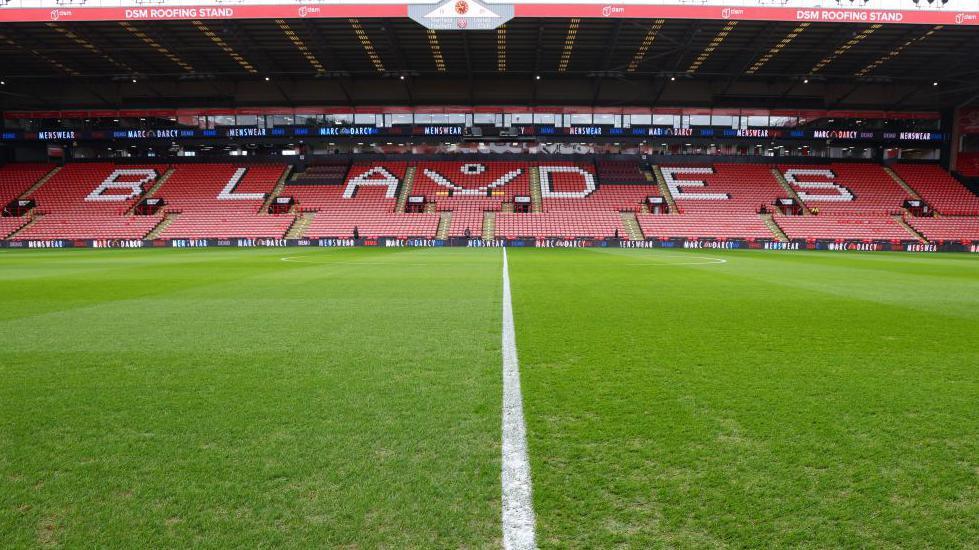What are Sheff Utd doing to be more sustainable?

- Published
Monday, 22 April marks Earth Day - a day in the international calendar that provides the opportunity to reflect, make change and understand more about sustainability and the impacts of climate change.
Sport and football are not immune to these issues and there has been increasing awareness of their relationship to the environment over the past few years.
Football has a global footprint and, as it continues to grow, it has been subject to questions and criticism over some of the decisions that could hinder efforts in reducing its impact, including expanding Uefa cup competitions and the men's Fifa World Cup.
The effects of adverse weather related to climate change has been increasingly felt, with a study last year showing extreme weather has affected 40% of football players and spectators.
But, football and its fanbase also have an opportunity to be part of the solution, with clubs like Forest Green Rovers showing how the sport's environmental footprint can be reduced.
We have taken a look into some of the key things Sheffield United are doing to become more sustainable:
They are a member of the EFL Green Club, which is a scheme to help clubs improve their environmental practices and operations.
They have solar panels on the roof at the academy and a programme in place to expand solar energy usage.
All disposable food packaging is 100% sustainable and compostable and they have replaced all plastic cutlery and stirrers with wooden alternatives.
Water boreholes are in place at Bramall Lane and the academy to collect water and help with pitch irrigation.
Club food menus use a minimum of 80% British seasonal fruit and veg.
One important area all Premier League clubs can address to reduce their carbon footprint is their travel, as shown in BBC Sport research.
Why is this important?
Football For Future is a non-profit organisation working with stakeholders across football to create a more environmentally sustainable culture and founder Elliot Arthur-Worsop told BBC Sport: "Climate change will be the defining challenge of our generation, and the future of football will be affected too.
"We're already seeing the impacts, with more than 120,000 English grassroots games being called off annually, and major tournaments such as the World Cup and Afcon being moved because of extreme weather.
"Beyond the pitch, the climate crisis threatens livelihoods and global food and water security.
"With its unparalleled social influence, football has an opportunity to inspire global climate action, from micro-behaviours to essential policy change."
What would you like to see your club do more (or less) of to be greener?